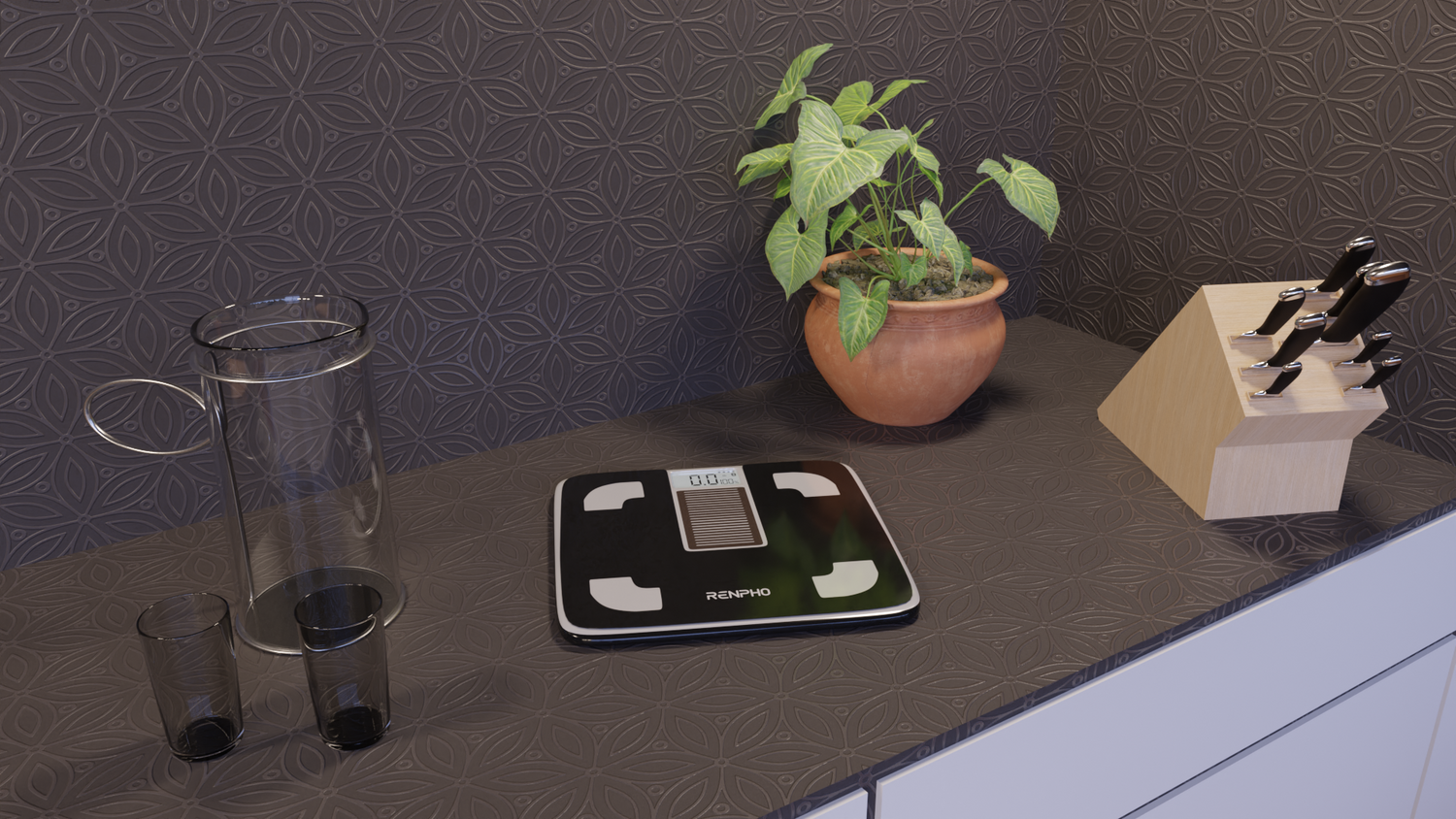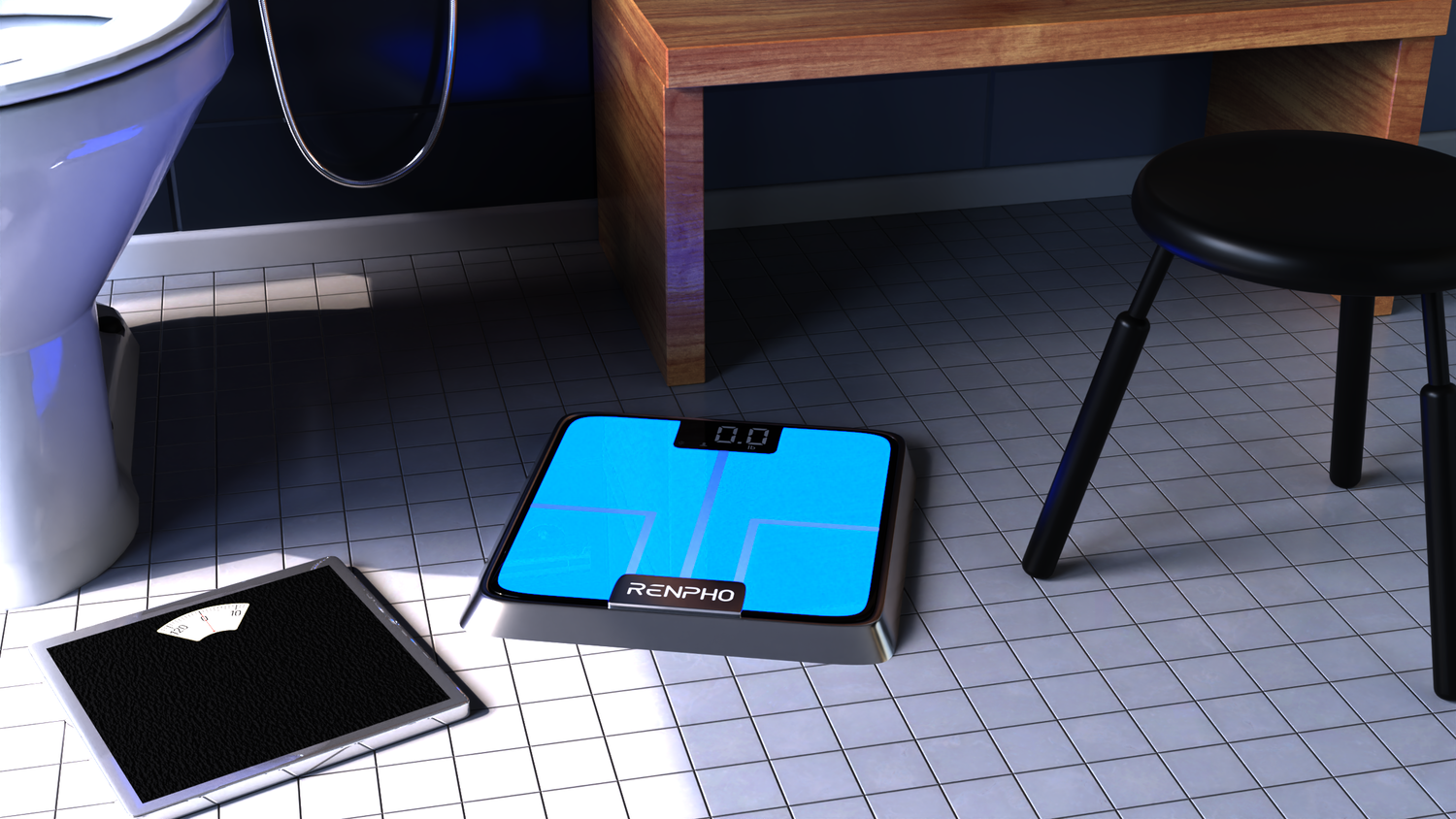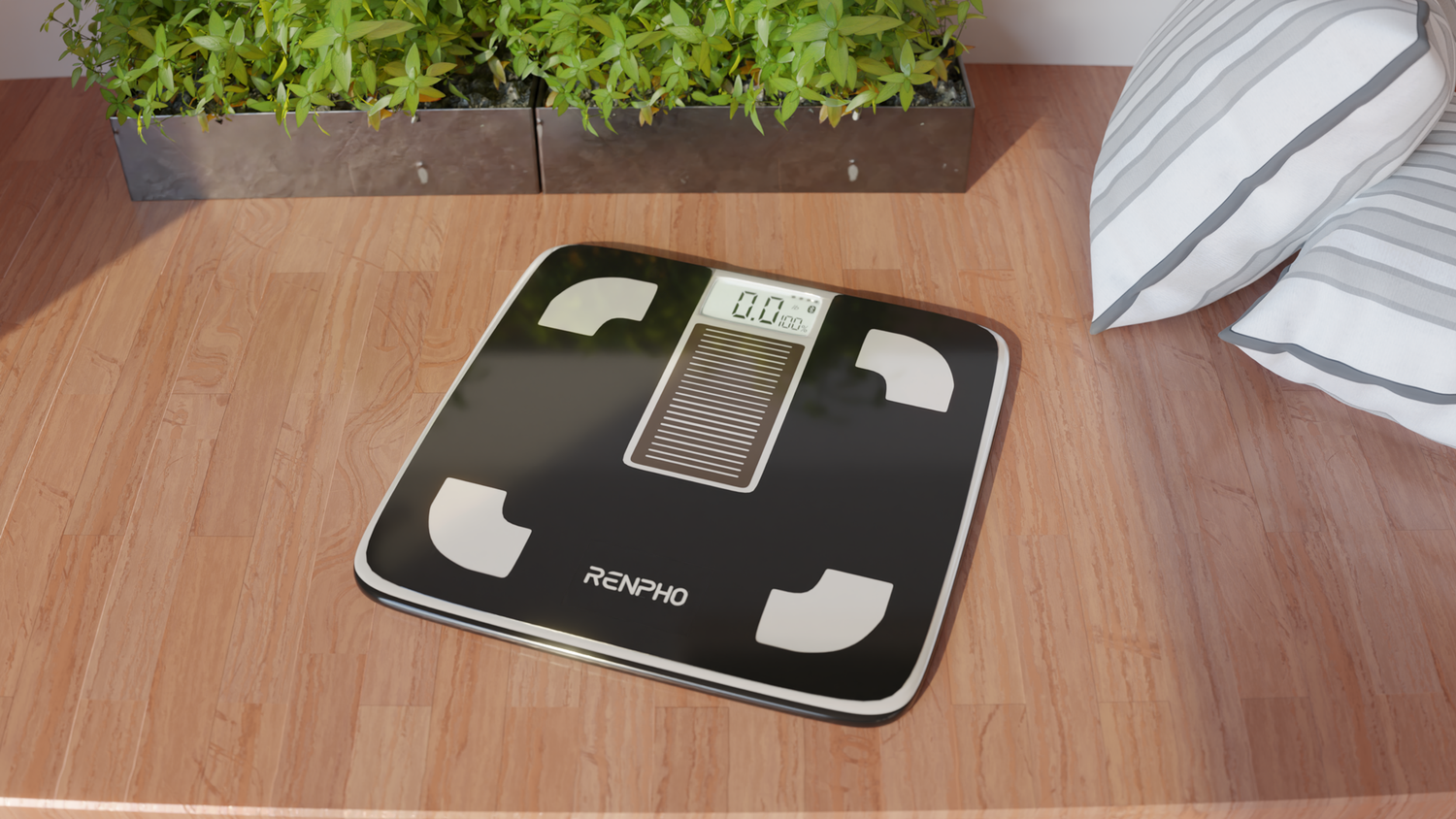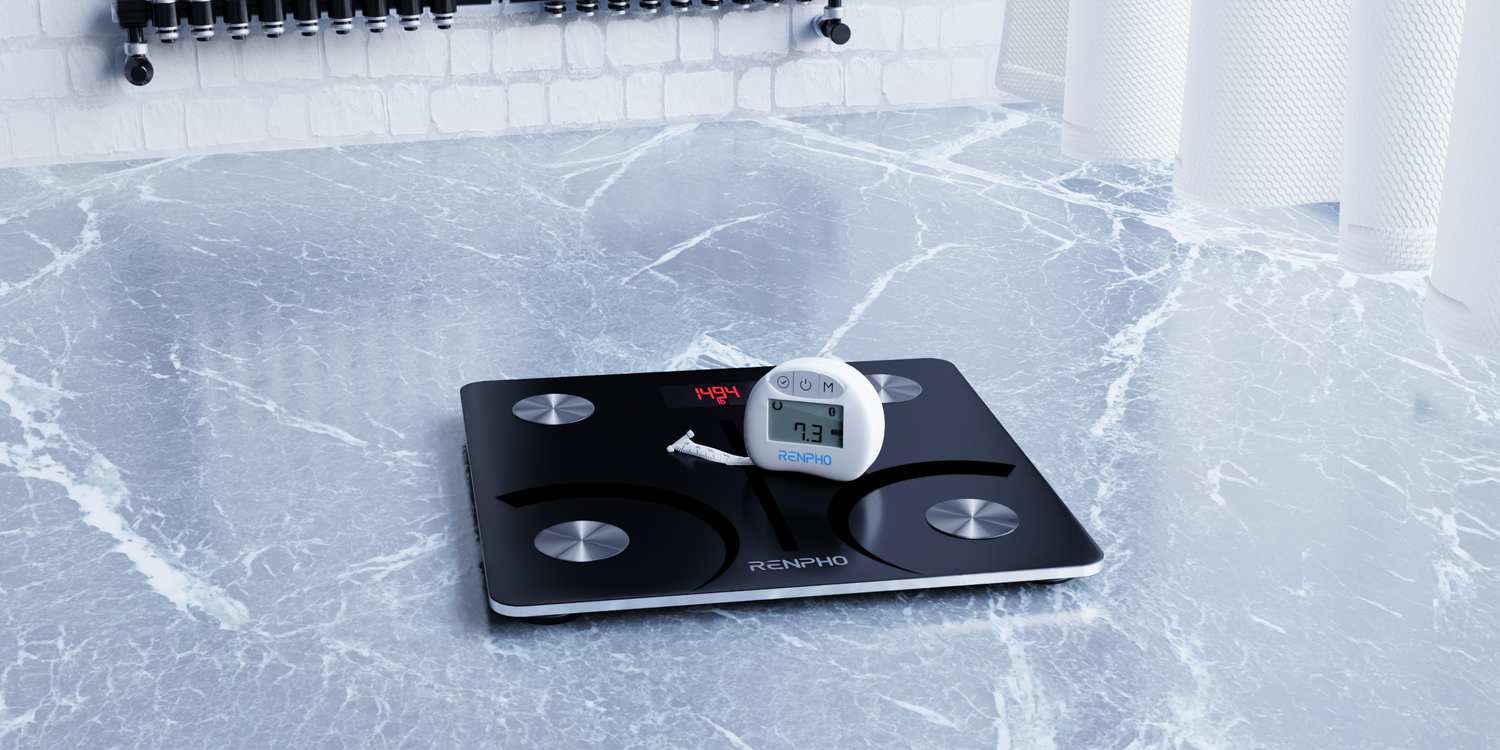Having a reliable and accurate digital scale is crucial for individuals to be conscious about their weight and overall health. However, you may have experienced instances where your scale seems to provide inconsistent or inaccurate readings. This can be frustrating and can make it difficult to track your progress effectively.
So, in this blog, let’s explore five common reasons why your digital scale may be giving you inaccurate measurements. By understanding these factors, you will be better equipped to troubleshoot and ensure that your scale provides precise and reliable readings. Let's dive in and uncover the potential sources of inaccuracies in your digital scale.
Why Is It Important for Digital Scales to Be Accurate?
First things first, accurate weight measurements are crucial for health monitoring and medical treatments. Inaccuracies can lead to incorrect diagnoses and treatments, potentially impacting an individual's well-being. For example, inaccurate weight measurements can affect medication dosages, dietary recommendations, and tracking of progress in managing conditions like obesity or eating disorders, potentially compromising the effectiveness of medicine, hindering weight management goals, and making it difficult to assess one’s progress accurately.
Therefore, precision is essential for individuals who closely monitor their weight for health reasons, such as those with diabetes, heart disease, or respiratory issues. For athletes, accurate weight measurements are important for optimizing training and performance. Having precise data helps individuals track their progress and make informed decisions about their health and wellness. Consequently, digital scales must be accurate to ensure that individuals receive the appropriate medical treatments and can monitor their health effectively.
5 Reasons Why Your Digital Scale Is Inaccurate
Are you frustrated with your digital scale consistently giving you inaccurate readings? There may be several reasons why this is happening. From user errors to technical malfunctions, it's important to identify and address these issues to ensure the accuracy of your measurements. Whether you use your scale for cooking, fitness, or other purposes, here’s why your digital scale may be providing inaccurate readings as understanding these potential issues can help you achieve more reliable and precise measurements.
-
Improper Calibration
Improper calibration of a scale can lead to inaccuracies in weight measurements. To address this issue, the first step is to check for any wear and tear on the scale itself, including the weighing platform, load cells, and any other moving parts. If any damage is found, it should be repaired or replaced before proceeding.
Essentially, you should recalibrate your digital scale if it has been turned upside down or moved to a different location to account for environmental changes. If you don’t know how, here’s a step-by-step guide on how to recalibrate your scale.
After calibration, it is essential to test and verify the accuracy of the scale by placing known weights on it and comparing the displayed weight to the actual weight. If there are any discrepancies, the calibration should be adjusted accordingly.
To maintain accuracy, the scale should be recalibrated regularly, especially after any maintenance or repairs. This will ensure that the scale continues to provide accurate weight measurements and prevent any issues related to improper calibration.
-
An Uneven Surface
When dealing with an uneven surface, it's important to address the balance of the scale to ensure accurate readings. Start by checking the balance of the scale and adjusting the feet until it is level. This will help in providing accurate measurements. Additionally, make sure that the base of the scale is placed on a broad and solid surface to ensure stability.
If the surface remains uneven, consider using a weighing station for a stable surface. A weighing station provides a level and firm base for the scale, allowing for precise measurements.
By addressing the scale balance, ensuring the base stability, and using a weighing station on an uneven surface, accurate readings can be achieved. This will ultimately help in obtaining reliable and consistent measurements, regardless of the surface conditions.
-
An Unbalanced Load
An unbalanced load on a scale can result in inaccurate readings. To address this issue, ensure that the weight is evenly distributed on both sides of the scale. Avoid placing heavy objects on one side and light objects on the other, as this can cause the scale to tilt and give misleading results. If you often weigh animals or liquids, consider purchasing a scale with a dynamic weighing function. This feature allows the scale to continuously adjust and compensate for any movement or unbalanced load, providing more accurate readings. By paying attention to weight distribution and using the appropriate scale, you can ensure that your measurements are precise and reliable.
-
Water or Moisture Damage
Water or moisture damage to scales can greatly affect their accuracy and performance. If your scale is exposed, it is important to immediately shut down the system and let it dry completely before attempting to use it again. This prevents further damage to the internal components of the scale.
To prevent water or moisture damage in the future, consider using a scale with a high IP (Ingress Protection) rating for maximum wetness protection in high-moisture environments. Look for scales with IP67 or IP68 ratings, which indicate a high level of protection against water and moisture.
Additionally, consider using hermetically sealed load sensors and cables to prevent moisture from entering the sensitive components of the scale. Hermetically sealed components are completely airtight and sealed to prevent any moisture from getting inside.
By taking these precautions and using scales with high IP ratings and hermetically sealed components, you can effectively protect your scales from water and moisture damage, ensuring their longevity and accuracy.
-
Residue or Grime Buildup
When inspecting the scale, it is important to check for any residue or grime buildup, particularly around the load cells and moving parts. Excessive dirt can impact the accuracy of the scale, leading to incorrect weighing results. Carefully remove any debris using the manufacturer's guidelines to prevent binds and ensure precise measurements. Taking the time to regularly clean and maintain the scale will also increase its lifespan and reliability. For more detailed instructions on how to clean the scale thoroughly, refer to the guide on how to clean a balance, which provides step-by-step procedures for ensuring that the scale remains free of residue, dirt, and accumulation. By following these guidelines, you can help to maintain the accuracy and functionality of the scale for consistent and reliable weighing.
Takeaway
Having a reliable and accurate digital scale is crucial for tracking progress and managing weight-related conditions effectively. Inaccurate measurements can impact medication dosages, dietary recommendations, and the ability to monitor health conditions accurately. By understanding common reasons for inaccuracies, such as improper calibration, uneven surfaces, unbalanced loads, water or moisture damage, and residue buildup, individuals can troubleshoot and ensure precise readings.
By addressing these factors, individuals can ensure their digital scale provides precise readings, allowing them to make informed decisions about their health, track progress accurately, and effectively manage their weight-related conditions. With a reliable and accurate digital scale, individuals can confidently monitor their weight and take control of their health and well-being.
Renpho Health Tips
-

Can Smart Scales Help You Determine if You're Dehydrated?
January 11, 2024
Read more >
-

Which One Is Better: Analog or Digital Bathroom Scales?
January 9, 2024
Read more >
-

Weighing In on Smart Scales: Are They Worth It?
October 24, 2023
Read more >
-

Cracking the Code: BMI and Body Fat Percentage
October 10, 2023
Read more >
-

What Your BMI Says About Your Health
October 3, 2023
Read more >




































